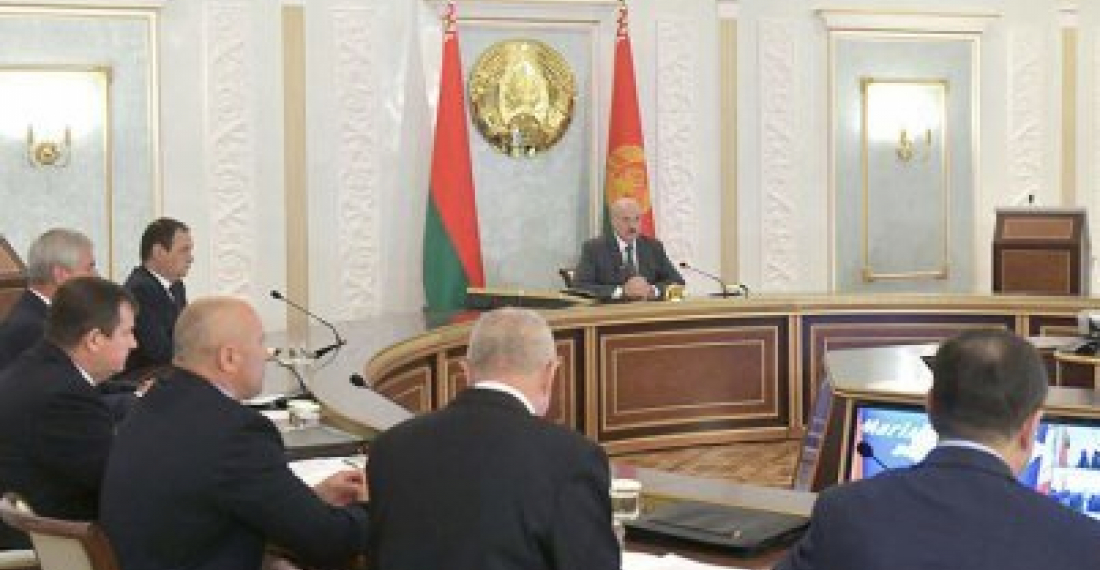EU Council president Charles Michel spoke to president Putin on Thursday (20 August), informing him of EU's position on the ongoing crisis in Belarus, agreed yesterday by the leaders of the 27 member states.
Michel tweeted
— Charles Michel (@eucopresident) August 20, 2020
The EU leaders on Wednesday agreed on a strategy for dealing with the crisis in Belarus, which tried to balance a firm message to the Belarusian authorities with a way forward through dialogue. A statement issued afterwards made it clear that the EU considered the 9 August elections "were neither free nor fair, therefore we do not recognise the results".The statement adds:
"The people of Belarus have a right to determine their future. The members of the European Council express their clear solidarity with the people of Belarus in their desire to exercise their fundamental democratic rights.
The members of the European Council condemn the disproportionate and unacceptable violence displayed by the state authorities against peaceful protesters. Violence must be avoided and all those unlawfully detained must be immediately and unconditionally released. Civil society and opposition actors engaged in discussions of political transition must be protected from arbitrary arrests and violence. The EU expects a complete and transparent investigation into all alleged abuses.
The EU will shortly impose sanctions against a substantial number of individuals responsible for violence, repression and the falsification of election results.
Progress made in the past years in the relationship between the EU and Belarus is at risk. Any further deterioration of the situation will impact on our relationship and have negative consequences.
We call on the Belarusian authorities to find a way out of the crisis through an end to violence, de-escalation, and an inclusive national dialogue. Only a peaceful and democratic process, underpinned by independent and free media and a strong civil society, can provide sustainable solutions. All parties, including third states, should support such a process.
We will continue to follow the situation closely and stand ready to contribute to efforts to peacefully end the crisis. The EU fully supports OSCE proposals for dialogue in Belarus and is ready to provide assistance to further them"
In Minsk however, Belarus president Alexander Lukashenko appeared defiant, ordering a clampdown on protestors, and re-appointing his Ministers to their position, after they had resigned as was required by law after the 9 August election.
A re-run of the election appears to be the only way out of the current crisis, but Lukashenko appears to be adamant in resisting this request.
Commonspace.eu political editor said in a comment that the European Union is being very careful how it is dealing with the crisis - rather than barging in it is trying to tip toe softly into engaging with what is a complicated situation. It is also trying to find a way of working with Russia on the crisis, rather than confronting or opposing Russia. It seems that president Putin is also not keen on dramatic confrontations. The problem is that Brussels and Moscow have high stakes in Belarus, but their capacity to influence events is limited. The Belarusian leader, Alexander Lukashenko is stubborn and has a fixed view of the world, and of the place of Belarus in it, which colours a lot of his decision making. He will continue trying to play Moscow against Brussels and Washington. But the the strength of the opposition to him inside the country is now so high that plastering over the cracks is no longer a viable option for him either. Change is coming to Belarus, but quite what kind of change, and how it will happen, remains to be seen."
source: commonspace.eu with agencies
photo: Belarus President Alexandor Lukashenko addressing his National Security Council on Wednesday, 19 August 2020. (picture courtesy of Belta News Agency, Minsk.)







